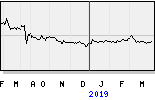
Biotech company Pharming Group NV ("Pharming" or "the Company") (NYSE Euronext: PHARM) announced today that the US Food and Drug Administration (FDA) has authorized a clinical study with recombinant human C1 inhibitor (rhC1INH) for the treatment of antibody-mediated rejection (AMR) in kidney transplantation. Dr. Hans Sollinger of the University of Wisconsin, Madison will conduct the clinical trial with rhC1INH under an Investigator IND from the FDA.
Over 15,000 kidney transplants occur in the USA annually. In 2005 and 2006, the organ transplant program at University of Wisconsin ranked first in the USA for numbers of kidney transplants performed. Following transplantation, some recipients make specific antibodies against the donor kidney that cause activation of the classical complement system. This process known as antibody-mediated rejection results in inflammatory damage to the transplanted kidney that can lead to organ failure and graft loss. Over the past decade, AMR has been recognized as a significant cause of kidney transplant loss.
Recombinant human C1 inhibitor is a key inhibitor of the classical complement system. In the planned study, rhC1INH will be evaluated in patients with AMR for its ability to prevent the inflammatory damage seen in the kidney, improve organ function, and reduce the likelihood of graft loss. In this study, Dr. Sollinger will study patients with AMR to compare rhC1INH against standard of care, which consists of a combination of non-specific treatments including plasmapheresis, steroids and intravenous immunoglobulin. Previously, Pharming successfully completed a Phase I safety study with rhC1INH in healthy volunteers.
Dr. Hans Sollinger, University of Wisconsin commented: "I am enthusiastic about taking rhC1INH forward in this clinical trial for antibody-mediated rejection. Antibody-mediated rejection is a serious and costly complication for which there is no specific therapy. RhC1INH has great potential in changing the way we treat AMR and extend the life of a transplanted kidney."
Dr. Bruno Giannetti, COO of Pharming remarked: "We are excited about the opportunity to work together with Dr. Sollinger, a preeminent transplant researcher and surgeon who led the clinical development of CellCept®, a therapy that has greatly benefited transplant patients. We look forward to seeing how rhC1INH may help in transplantation as well as other complement-mediated diseases."
Background on Investigational New Drug (IND) Application
An Investigational New Drug application is a request for authorization from the US Food and Drug Administration to administer an investigational drug or biological product to humans consistent with an approved protocol. Such authorization must be secured prior to interstate shipment and administration of any new drug or biological product. The IND application contains information on the product's preclinical and clinical results, manufacturing data, and detailed clinical protocols for proposed clinical studies. An IND approval confirms that the FDA agrees that the product can be tested in humans to collect information pertinent to the products safety and efficacy.
